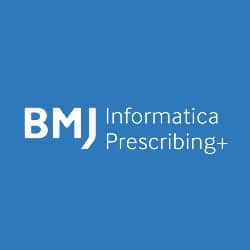Prescribing+ pulled from market
- 13 August 2013

BMJ Informatica has pulled its medicines optimisation tool Prescribing+ from the market and suspended the Safety+ product on Emis systems.
Prescribing+ was launched last July and is designed to help GPs and commissioners improve prescribing by providing information about cost, safety, availability and effectiveness of medicines.
BMJ Informatica told EHI Primary Care it is temporarily withdrawing the tool, “in response to feedback from early adopter customers”.
A statement says it plans to develop an enhanced product that “addresses the detailed feedback received” and that Prescribing+ customers have been informed of the decision.
“As a result of a review of drug code mapping on other Informatica products, we have temporarily suspended the Safety+ product on Emis systems only,” the statement adds.
Safety+ provides contextual guidance to GPs on NHS and other safety alerts.
Problems with deployments of Prescribing+ are highlighted in an update provided in Ashford CCG’s June board papers.
A prescribing support update says practices across four East Kent CCGs – Ashford, Canterbury, South Kent Coast and Thanet – were supposed to be getting Prescribing+ in conjunction with Eclipse from 1 April.
Eclipse Live is an additional software program which provides a ‘safety net’ function for prescribing.
The document reveals several issues and delays with the roll-out caused partly by overload of the data flow to and from Emis Web practices.
“All BMJ Informatica software programs were suspended on the 22nd May with the exception of their front desk program due to on-going problems,” the document says.
“The cause of this problem has been identified as the initial data surge both from current Emis Web practices going live with Prescribing+ and new Vision practices moving to Emis Web with or without Prescribing+.”
Other problems highlighted include the use of an intermediate version of INPS’ Vision and an “IT glitch” in the link between Eclipse and Prescribing+.
It says input needed from practices was far higher in terms of time and complexity than originally explained, there was a lack of printed support material and practices were reluctant to engage with web based training, which only increased with loss of confidence in the system.
A working system was expected to be in place within seven weeks from mid-June for non-Emis Web practices and four weeks for Web practices.
The document raises the issue of costs due to the lack of a functioning system have been discussed with BMJ Informatica and compensation will be discussed.
All invoices for the system were on hold until a functioning system was in place.
The paper says the alternative is to return to Scriptswitch which has reduced functions and is more expensive at £0.37 per patient rather than £0.18.
The cost difference of using Scriptswitch instead of Prescribing+ at all four CCGs would be more than £140,000, the document says.
An Ashford CCG spokesperson told EHI Primary Care Prescribing+ system was in the process of being rolled out by the CCG when it was withdrawn by the company.
"We will be considering alternative products that provide point of prescribing support in a timely manner to our clinicians," the spokesperson said.
An Emis spokesperson said the company has been working with BMJ Informatica on the accreditation of its Prescribing+ software for use with EMIS systems.
“During this process, BMJ Informatica discovered a potential clinical safety issue relating to the integration of the two platforms and decided to temporarily withdraw the product from the market," the spokesperson said.
“We support the BMJ’s prudent decision and are working closely with them to understand and resolve the issues. Until these are resolved, we have suspended the accreditation programme.”




